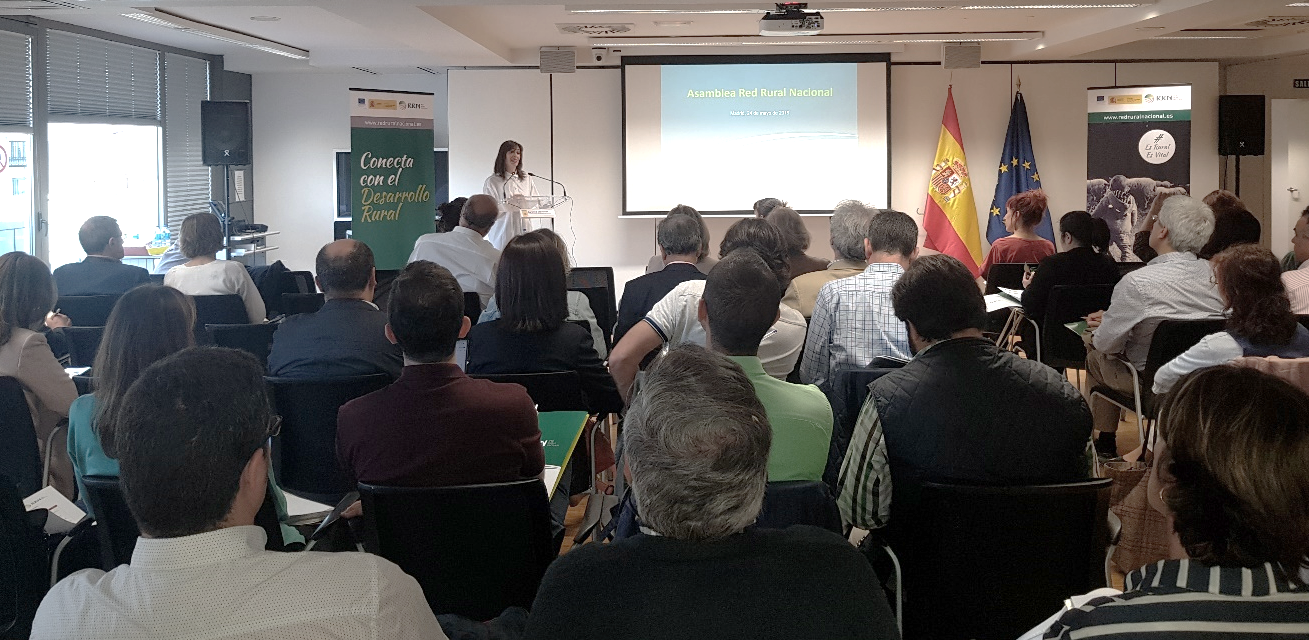
27 de May de 2019
The National Rural Network Assembly is meeting for the first time during the 2014-2020 programming period, marking the start of a new way of working, one that aims to be more accessible, more effective, and with a stronger presence and connection with rural areas.
05/24/2019
Proximity to the territory, the redefinition of its activities, and the role that the National Rural Network should play are some of the reflections shared at this meeting. During the day, the importance of joint debate was highlighted, addressing what the NRN is, what it should be, and what it could do to maximize its usefulness, this being one of the most emphasized objectives.
Over the past few months, the National Rural Network Management Unit has promoted several projects that have informed the debates on its operation and the decisions submitted. All of these documents were shared with the Assembly members and are available online.
In order to adapt the RRN's actions as closely as possible to the needs of rural areas, a needs assessment was conducted, based on which the external consultancy proposed a strategic redefinition.
Based on this work, a series of decisions have been made, including more strategic planning of actions; a commitment to giving greater weight to the Assembly ; the creation of a LEADER subgroup within the NRN , which will inform the debate on the definition of this measure in the future CAP strategic plan; the organization of work into five priority thematic areas : combating depopulation, rural youth, women, innovation, the environment and climate change, and revitalization and entrepreneurship; and the creation of Thematic Groups to delve into each of these in turn; and finally, a more active presence of the NRN in the region.
In the second part of the meeting, each topic was addressed separately in different working groups composed of members of the RRN Assembly, through participatory dynamics.
Isabel Bombal, Director General of Rural Development, Innovation and Forestry Policy at MAPA , highlighted the importance of building a shared narrative for rural development policies , focusing efforts and priorities on sustainability, with environmental ambition and without losing sight of a cross-cutting vision. The Ministry urges work on mechanisms that combine new technologies with traditional methods that truly give a voice to the territory, with a view to the future of the CAP , prioritizing participation, partnerships, and the fundamental role of civil society in the design of public policies.











